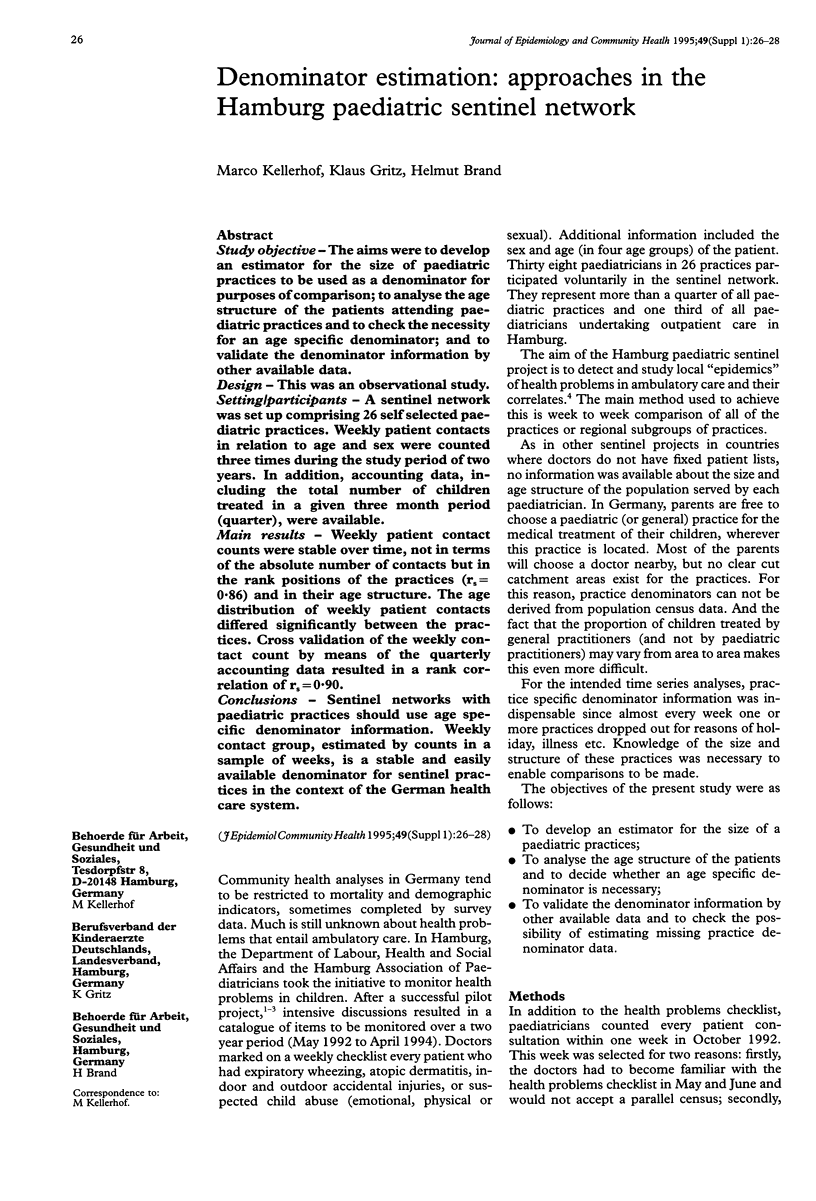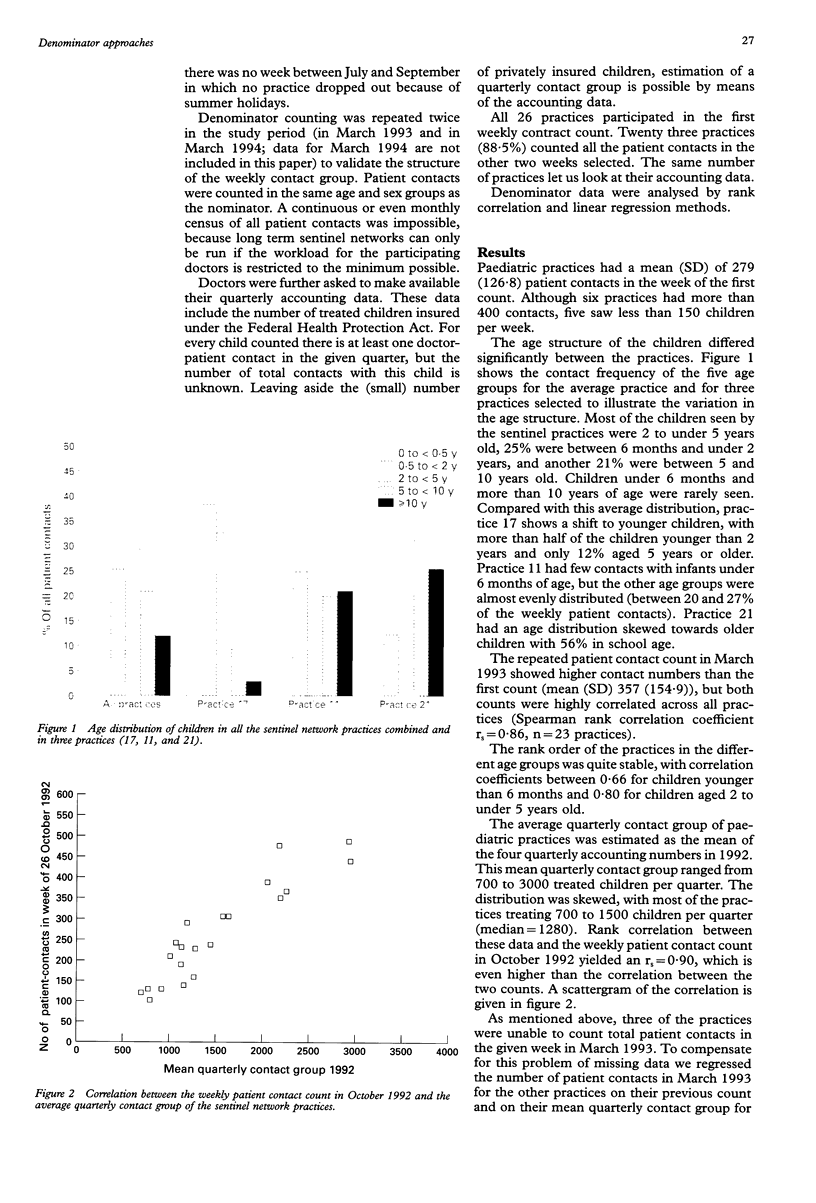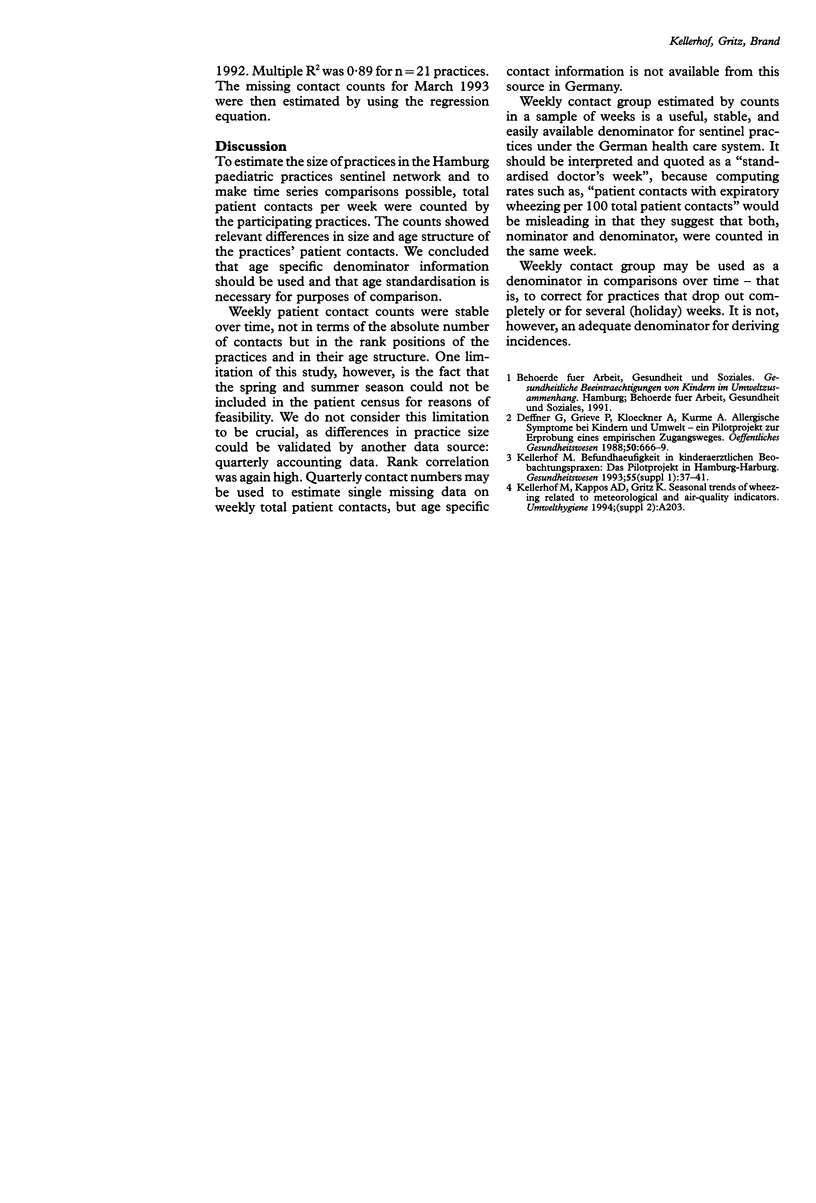Abstract
STUDY OBJECTIVE--The aims were to develop an estimator for the size of paediatric practices to be used as a denominator for purposes of comparison; to analyse the age structure of the patients attending paediatric practices and to check the necessity for an age specific denominator; and to validate the denominator information by other available data. DESIGN--This was an observational study. SETTING/PARTICIPANTS--A sentinel network was set up comprising 26 self selected paediatric practices. Weekly patient contacts in relation to age and sex were counted three times during the study period of two years. In addition, accounting data, including the total number of children treated in a given three month period (quarter), were available. MAIN RESULTS--Weekly patient contact counts were stable over time, not in terms of the absolute number of contacts but in the rank positions of the practices (rs = 0.86) and in their age structure. The age distribution of weekly patient contacts differed significantly between the practices. Cross validation of the weekly contact count by means of the quarterly accounting data resulted in a rank correlation of rs = 0.90. CONCLUSIONS--Sentinel networks with paediatric practices should use age specific denominator information. Weekly contact group, estimated by counts in a sample of weeks, is a stable and easily available denominator for sentinel practices in the context of the German health care system.
Full text
PDF


Images in this article
Selected References
These references are in PubMed. This may not be the complete list of references from this article.
- Deffner G., Grieve P., Klöckner A., Kurme A. Allergische Symptome bei Kindern und Umwelt--ein Pilotprojekt zur Erprobung eines empirischen Zugangsweges. Offentl Gesundheitswes. 1988 Dec;50(12):666–669. [PubMed] [Google Scholar]
- Kellerhof M. Befundhäufigkeit in kinderärztlichen Beobachtungspraxen: Das Pilotprojekt in Hamburg-Harburg. Gesundheitswesen. 1993 Feb;55(1 Suppl):37–41. [PubMed] [Google Scholar]



